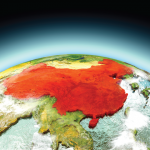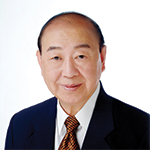
The 24 rheumatologists in Pakistan fight an uphill battle every day–they care for a population of roughly 160 million people. Granted, not all Pakistanis need the care of a rheumatologist, but approximately 24 million people are likely to develop some form of rheumatic disease in that country alone, and one million patients per trained physician is an overwhelming prospect. As a first step to address the problem, Nighat Mir Ahmad, MD, a U.S.-trained, board-certified rheumatologist and ACR International Fellow, and her colleagues have established one of three rheumatology training programs in Pakistan, and they have done so with the help of colleagues from the ACR and other organizations.
Dr. Ahmad says that when she came to Pakistan in the 1990s, she was the first female board-certified rheumatologist in the country. “When I left the United States,” she says, “I felt that I would not be able to handle the challenge ahead of me by myself.” In the years since her return, however, she and her colleagues have developed the training program at Fatima Memorial Medical College in Lahore and worked as members of the Pakistan Society of Rheumatology (PSR). Dr. Ahmad has served as president of the PSR.
Dialogue with China
Pakistan, however, is not the only country where the ACR has worked to improve the practice and science of rheumatology, and is not likely to be the last. The ACR, as an organization, makes regular contributions to global medical education.
Collaboration and exchange were the goals of the “East Meets West Dialogue,” a program that debuted at the 2010 annual meeting in Atlanta and involved 19 Chinese rheumatologists who attended the meeting under the sponsorship of the China Medical Tribune (CMT). A Chinese-language publication that covers medicine in China, CMT created the program to help lower the barriers to participation in Western medical meetings for Chinese doctors in a number of specialties. CMT helped more than 150 doctors attend meetings last year and expects to help more than 400 doctors travel abroad in 2011. CMT has worked with medical societies such as the European League Against Rheumatism, the World Heart Federation, the American Diabetes Association, the International Union Against Cancer, and the San Antonio Breast Cancer Symposium, as well as the ACR. Pfizer was the primary corporate sponsor for the 2010 program with the ACR.
ACR Immediate Past President Stanley B. Cohen, MD, says, “During my year as ACR president, I had the opportunity to interact with rheumatologists from all over the world, and clearly our specialty is growing worldwide. It was clear from my visit to Hong Kong for APLAR [Asia Pacific League of Associations for Rheumatology] that the interest in rheumatology is expanding, as demonstrated by the significant increase in the number of participants at the conference over the last several years. The growth in both basic science research and clinical research in Asia was reflected by the quality presentations at the meeting.”
Mark Danderson, vice president of CMT in charge of foreign business development, says that by 2012, China is expected to surpass Japan as the second-largest medical market in the world. “From that point forward,” he says, “medicine will truly be a bipolar world with the U.S. and China in the lead. It is in the interest of both China and the West to build bridges and learn from each other.”
Danderson says that the East Meets West Dialogue is important because Chinese researchers are not integrating into the global community to a degree that would be expected at this stage of China’s development. He cited several barriers to their participation, including cost and language skills. Chinese doctors earn only a small fraction of what their Western colleagues do, Danderson notes, and Chinese doctors, on average, are far less proficient in English than their colleagues abroad. It is also difficult for Chinese doctors to get visas to travel to Western countries. Finally, Chinese doctors are often unfamiliar with Western medical societies and lack connections with Western doctors that would naturally encourage communication and participation in Western medical meetings.
At the end of the meeting, the Chinese participants were asked to rate their experiences. They said that the most important benefits were increasing their understanding of the field of rheumatology, obtaining new clinical research information, and learning about foreign clinical practices. They also rated meeting foreign experts as an important part of the meeting.
“I hope this exchange can be the first of many to come,” Dr. Cohen says. “I think it is important to embrace our international colleagues as the world continues to become smaller. The ACR is known for fostering lifelong friendships, and I think this program will be beneficial to ACR members from all over the world.”
Lending a Hand in Pakistan
Plans are currently underway to continue the East Meets West Dialogue during the 2011 annual meeting in Chicago, but ACR members already are making a difference by participating in smaller programs like the one in Pakistan. Sara E. Walker, MD, an ACR Master who is also professor emeritus at the University of Missouri in Columbia, first traveled to Pakistan in 1999 with her late husband, rheumatologist Donald R. Kay, MD, at the invitation of Arif Nawaz, MD, a U.S.-trained gastroenterologist. During the trip, she met Dr. Ahmad and Sumaira Farman, MBBS, CCD, an ACR international fellow, as she gave talks on a variety of topics in several teaching hospitals and saw patients in Lahore and Islamabad.
“In four subsequent visits, I worked with Dr. Nighat Ahmad and her team to assist in teaching medical students, internal medicine residents, rheumatology fellows, and practicing physicians,” Dr. Walker says. “I witnessed the development of the Pakistan Society of Rheumatology into an organization of rheumatologists dedicated to educating doctors and members of the public. The membership is small but enthusiastic, and they put on an outstanding educational seminar every year.”
Dr. Ahmad says that her ACR membership helps keep her updated with the latest developments in rheumatology and keeps her connected with the rest of the world, and she encourages her colleagues to join the ACR. Muhammad Ahmed Saeed, MBBS, is the most recent physician from Fatima Medical Center to join the ACR.
“The ACR slide collection is a great resource for teaching family physicians and students,” Dr. Ahmad says. “Over the years, ACR has been generous in reducing our annual membership dues, taking into account the financial constraints of working in a developing country.”
Although Dr. Walker has been a frequent visitor to Dr. Ahmad’s program, she is not the only ACR member to do so. ACR Master Muhammad Asim Khan, MD, at Case Western Reserve University School of Medicine, with whom Dr. Ahmad trained in Cleveland, has been instrumental in helping develop the program in Pakistan, and ACR Fellow Daniel S. Sager visited earlier this year to teach in the program.
Education in Africa
Dr. Sager also has worked in Cambodia, a country of almost 15 million people with no rheumatologists, and in Kenya with ACR International Fellow Omondi G. Oyoo, MD, MMed, at the University of Nairobi. “We have talked about trying to organize a committed group of doctors to rotate in and out of the medical school in Nairobi,” Dr. Sager says. “I worked for a month at Kenya’s other medical school, Moi University, in 1997.”
Dr. Sager eagerly accepted an invitation to speak at an African League of Associations for Rheumatology meeting earlier this year. “I feel the success of clinics will eventually be dependent on the accuracy and simplicity of diagnosis,” Dr. Sager says, “and so I have been keen to discuss with my international colleagues teaching and diagnosis methodologies for medical students and community doctors that may be most practical and effective to apply in settings where time and resources are limited.”
Dr. Walker says she believes that the ACR has an important role in furthering medical education and professional development in other countries, primarily because it’s the right thing to do. Secondly, she says that new, potent, and expensive treatments are increasingly available in other countries, and all physicians treating rheumatic diseases need to know how to use them wisely. Thirdly, she says, nonrheumatologists need to be taught the proper diagnosis and treatment of rheumatic diseases because there are so few trained rheumatologists in places like Pakistan. Then, she says, the public needs proper education to promote understanding of rheumatic diseases because so many of them do not have access to the Internet, television, or daily newspapers. Finally, she says, it is important to stress the appropriate relationship between medical professionals and pharmaceutical companies. All of this, Dr. Walker says, contributes to the welfare of patients.
International Communication Key
Dr. Walker would like to see the ACR expand its formal role outside of the U.S. by establishing a speaker’s bureau for international educational meetings sponsored by groups like the Pakistan Society of Rheumatology and by creating international fellowships that pay for midcareer physicians from developing countries to travel to the U.S. for three months of observation in medical centers. She also would like to see funding developed so that the financial burden does not fall on the traveling physician.
ACR Secretary Joseph Flood, MD, a rheumatologist at Musculoskeletal Medical Specialists Inc. in Columbus, Ohio, hosted a visiting rheumatologist from the Ukraine several years ago and stresses that learning was not one-sided. He says he learned as much as she did.
“I think she was able to learn a lot about our diagnostic and therapeutic approaches and to return to the Ukraine with a deeper understanding of rheumatology and the luxuries of living and working in a wealthy country,” Dr. Flood says. “She was amazed and envious of the various medications we had available to treat rheumatoid arthritis. Many of them are simply not available to her patients at home. Even methotrexate was a bit exotic for her at the time.”
In return, he learned about practicing medicine in the Ukraine. “I think it is valuable to know how our colleagues around the world practice,” he says. “It is also very important for individuals from different cultures to know one another as individuals. Such friendships help bridge great gulfs of stereotype and misunderstanding.”
ACR President David G. Borenstein, MD, a rheumatologist at Arthritis and Rheumatism Associates and clinical professor of medicine in the division of rheumatology at the George Washington University Medical Center in Washington, D.C., agreed. “Educating rheumatologists is a conversation,” he says. “It is a give-and-take process where you teach and learn.” And the ACR has a long history of helping its members foster that conversation, he says.


